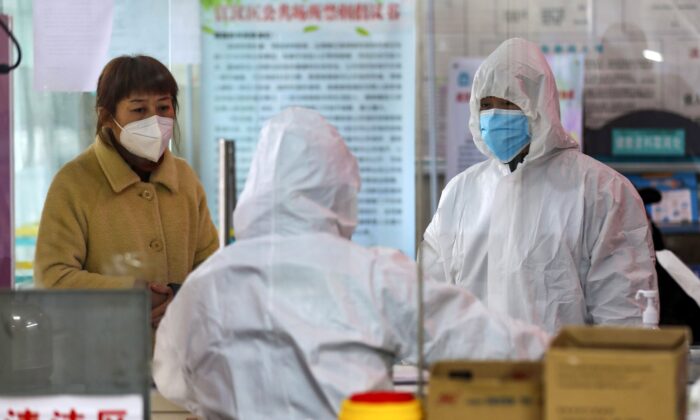Huawei Security Risks Front and Center as West Looks for Alternatives
Commentary
Today, truth and facts are valuable but contentious commodities. Every day we hear information that could turn out to be “fake news” and are presented with “alternate facts.” We are bombarded with endless information, including rumours and lies, from both traditional and new social media sources. Political calculations and objectives manipulate information. Most people find it hard to decipher and many give up.
Into this reality has crept a novel coronavirus from China.
COVID-19 is a serious global challenge with significant economic consequences and the possibility of a dangerous global health crisis. Thousands have been infected worldwide; many have already died in China and the number of deaths globally is rising.
One of the most significant problems is the absence of information and some false information coming out of China, where a lack of transparency is normal. Withholding or reshaping information is a problem with authoritarian governments. Unfortunately, the experience with China is being mirrored in Iran, where secrecy fuelled the spread of this pathogen and its transport across borders.
What do we know so far? We have a lot of scientific pathological information provided by China about the virus that appears to be accurate. There are accurate testing methods, but neither the method of propagation nor the natural history of the disease is fully understood. There is supportive therapy and work being done on specific treatments and prevention. It is impossible to know how contagious the disease is or its mortality without knowing the number of cases that are mild or asymptomatic as well. Information obtained covertly from China suggests a significant gap or disinformation on the timeline and medical history of COVID-19.
Accurate information is critical to formulate public health actions that need to be taken besides the standard advice to wash hands, avoid touching your face, and coughing/sneezing into the elbow. People with suspicious symptoms should not attend a medical treatment location without warning them in advance so that the appropriate isolation measures can be made ready. Self-quarantine after returning from China or other locations where there is community spread is being recommended by most authorities. One would be wise to apply the advice from health authorities.
So far, the risk to Canadians remains low. Canada has improved its readiness after learning from SARS. Clear thinking, asking the right questions, and getting accurate information is imperative for both individuals and authorities. Canada should have an information “hotline” to answer any questions. A good step has been Ottawa’s move this week to create a new Cabinet committee to tackle the coronavirus, aimed at improving coordination and preparedness.
The situation is very fluid, and we must adapt and be able to change course quickly. The best information is likely from the World Health Organization (WHO)—even if it is influenced by China’s incomplete reporting.
WHO Marginalizing Taiwan
This is not the time to isolate parts of the world or its citizens from urgent health information. Why should we be concerned about Taiwan? Separated from China by the Taiwan Strait, it is claimed by China. There is significant travel between Taiwan and China and between Taiwan and the rest of the world. The Taoyuan Airport is the 11th largest in the world measured by number of passengers.
However, as the Chinese communist regime has blocked Taiwan’s membership in or association with WHO, Beijing wouldn’t allow Taiwan to be involved in any discussions about COVID-19. Barred from a WHO emergency meeting on Jan. 30, 24 million Taiwanese people close to the epicentre of COVID-19 virus had no representation to, nor official information from, the organization.
Taiwan’s government is democratic and a strong defender of human rights. It is Canada’s 12th largest global trading partner. Excluding Taiwan from contact with WHO makes COVID-19 more dangerous for its nationals and the rest of the world.
Graeme Barber MD FRCS(C) is a retired vascular surgeon and associate professor at the University of Ottawa. He is a Canadian committee member of the International Coalition to End Transplant Abuse in China.
David Kilgour, a lawyer by profession, served in Canada’s House of Commons for almost 27 years. In Jean Chretien’s Cabinet, he was secretary of state (Africa and Latin America) and secretary of state (Asia-Pacific). He is the author of several books and co-author with David Matas of “Bloody Harvest: The Killing of Falun Gong for Their Organs.”
Views expressed in this article are the opinions of the author and do not necessarily reflect the views of The Epoch Times.
This article is from the Internet:COVID-19: Accurate Information Is Critical in Formulating Public Health Actions
Biden: Candidates Might Need Secret Service After Rally Disruption
